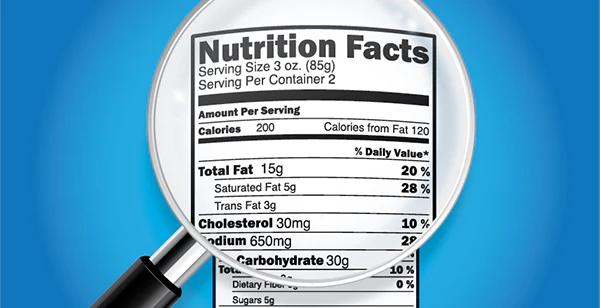Weight loss is a journey filled with highs and lows, and one of the most challenging obstacles many people face is the frustrating plateau. A weight loss plateau occurs when progress stalls despite consistent effort with diet, exercise, and even medication use. This typically happens around or after six months of active weight loss. It can be discouraging and lead to a loss of motivation. However, understanding why plateaus happen and learning effective strategies to overcome them can help you stay on track and continue making progress toward your weight loss goals.
Is Your Body Hitting a “Pit Stop” to Reset the Hypothalamus?
Think of your weight loss journey as a long-distance race. Initially, you’re full of energy and momentum, and the weight comes off steadily. But then, seemingly out of nowhere, you’re forced to slow down and take a “pit stop.” This slowdown is not a failure; rather, it’s your body’s natural response to significant changes in weight and metabolism.
During this phase, the hypothalamus—a part of the brain that regulates hunger, energy expenditure, and fat storage—plays a crucial role. As you lose weight, your body’s internal systems strive to maintain a stable weight range, known as the hypothalamic set point. The hypothalamus perceives the weight loss as a potential threat to equilibrium and may respond by lowering your metabolism and increasing hunger signals. This can make weight loss harder, as the body becomes more efficient at conserving energy. Recognizing this pit stop phase allows you to understand that your body is merely adapting, not resisting, and you need to adjust your approach accordingly.
What Are the Common Causes of a Weight Loss Plateau?
In addition to the hypothalamic reset, several other factors can contribute to a weight loss plateau. One of the most common is metabolic adaptation. As you lose weight, your body requires fewer calories to function. This means that the initial calorie deficit that promoted weight loss may no longer be sufficient, causing progress to stall. Additionally, hormonal changes, such as fluctuations in cortisol or insulin levels, can also impact weight loss efforts.
Another potential reason is water retention. Sometimes, the body holds onto excess water due to dietary changes, stress, or even intense exercise, making it seem like fat loss has stopped.
Muscle gain is another factor; if you’re building muscle while losing fat, the scale might not change even though your body composition is improving. Lastly, inaccuracies in tracking food intake and exercise can slowly add up over time, affecting your overall progress.
What Should You Do When You Hit a Plateau?
When you hit a plateau, it’s crucial not to get discouraged. Recognize that this is a normal part of the weight loss journey and an opportunity to reassess your strategy. Start by evaluating where you currently stand. Ask yourself if you’re satisfied with your progress. If you’ve reached a healthy, realistic weight, consider continuing with your current diet and exercise plan as a way to maintain your weight rather than pushing for further loss. This can help you transition from a calorie deficit to a maintenance phase.
Strategies to Break Through a Plateau
How Can You Reassess Your Caloric Needs?
Recalculate your daily calorie requirements based on your current weight and goals. Adjust your intake to ensure you’re still in a deficit and include adequate protein to support muscle maintenance.
Are You Monitoring Hidden Calories?
Track all food and drink intake carefully to avoid sneaky calories that can increase over time.
How Can You Improve Sleep Quality and Manage Stress?
Prioritize 7-9 hours of quality sleep and incorporate stress management techniques like meditation or yoga to keep cortisol levels in check.
What Should You Do to Change Up Your Exercise Routine?
Introduce new exercises or increase the intensity of your workouts. High-intensity interval training (HIIT) and strength training can be particularly effective.
Why Is It Important to Stay Hydrated and Keep Moving?
Proper hydration supports metabolism and controls hunger. Incorporate more movement throughout the day to increase overall calorie burn.
How Can You Track Progress Beyond the Scale?
The number on the scale doesn’t always reflect changes in body composition. Use body measurements, progress photos, or how your clothes fit to assess your progress. Celebrate non-scale victories like improved stamina, better sleep, or increased energy levels to stay motivated.
What Does It Mean to Stay Consistent and Patient?
Remember, plateaus are a natural part of the weight loss journey, not a sign of failure. By making small, manageable changes to your diet, exercise routine, and lifestyle, you can push through and continue progressing toward your goals. Seek support from professionals like nutritionists or trainers if needed, and remain resilient, adaptable, and compassionate with yourself.
How Modest Medix Can Help?
Modest Medix is an MD-led weight management program that offers a comprehensive and holistic approach to achieving and maintaining a healthy weight. Our team of registered dietitians (RD), social workers (SW), and health educators (HE), all under the supervision of a medical doctor, provide personalized care based on the latest medical guidelines. We understand the challenges of weight loss and are here to support you every step of the way.
Conclusion
Breaking through a weight loss plateau involves adjusting dietary intake, varying exercise routines, managing stress and sleep, staying hydrated, and celebrating non-scale victories. By understanding the reasons behind plateaus and adopting effective strategies, you can overcome obstacles, maintain momentum, and achieve your weight loss goals with confidence. Remember, the journey is as important as the destination, and every step you take is a step toward a healthier and more fulfilling life
Breaking through a weight loss plateau involves a combination of adjusting dietary intake, varying exercise routines, managing stress and sleep, staying hydrated, and celebrating non-scale victories. By understanding the reasons behind plateaus and adopting these strategies, you can overcome obstacles, maintain momentum, and achieve your weight loss goals with confidence. Remember, the journey is as important as the destination, and every step you take is a step toward a healthier and more fulfilling life.
About the Author:
Dr. Saima Khan, MD, CCFP, IPM, dABOM, is an Interventional Pain Medicine Specialist and Diplomate of the American Board of Obesity Medicine. As an Acceptance and Commitment Therapy (ACT) Therapist, she specializes in guiding patients with obesity and chronic pain toward value-driven living and meaningful actions. Dr. Khan is passionate about providing realistic, enjoyable, and sustainable health solutions that address both the physical and psychological needs of her patients. Through her innovative approach at Modest Medix and commitment to holistic care, she inspires individuals to take charge of their well-being.
As the author of this blog, Dr. Khan combines her medical expertise with a deep understanding of behavioral therapy to offer practical guidance for overcoming challenges like weight loss plateaus. She believes in helping people not just live, but thrive, by embracing a lifestyle that promotes long-term health and happiness. Her motto, “Don’t just live, THRIVE,” reflects her commitment to empowering others to reach their fullest potential through small, consistent changes and a compassionate approach to self-care. Dr. Khan’s passion for writing stems from a desire to connect with others, share her insights, and motivate them to achieve their best selves, creating a thriving life rooted in both science and compassion.










